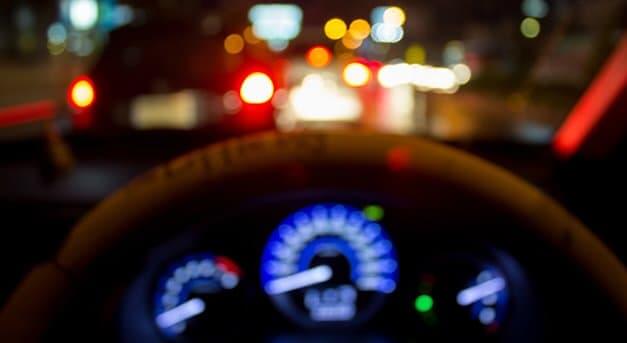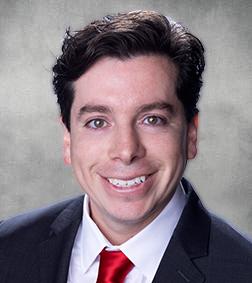Florida DUI Lawyers
Protect Your Rights By Contacting Our Best DUI Attorneys in Florida
Were you arrested for driving under the influence (DUI) of alcohol and/or drugs? If you are facing charges for one or two counts of this crime, an experienced attorney from Musca Law is waiting to help you create a viable case in court. In the State of Florida, a DUI is considered a serious offense that can result in charges of a 3rd-degree felony and a maximum of $2,000 to $5,000 in fines. Keep in mind that the risk for a DUI crime is raised when an individual’s blood-alcohol content (BAC) peaks at 0.08% or more. If a person is found to be guilty of multiple offenses of DUI, the punishment will worsen. If you need a voice to represent and protect your rights in court, call (888) 484-5057 to speak with a member of Musca Law firm today.
Under Florida law, there are multiple driving under the influence (DUI) charges an individual may face if arrested after allegedly drinking and driving. According to Florida Statute Chapter 316, Section 193, a person may face a DUI conviction if he or she does the following:
- (1) operates a vehicle or is in physical control of a vehicle within the state of Florida;
- (2) while under the influence of alcoholic beverages, any chemical substance identified in Florida Statute Chapter 877, Section 111, or any controlled substance identified in Chapter 893; and
- (3) has a blood-alcohol content (BAC) of 0.08 or more grams of alcohol per 100 milliliters of blood or has a BAC of 0.08 grams of alcohol per 210 liters of breath.
Florida Driving Under the Influence (DUI) Laws & Penalties
The penalties for a DUI conviction vary depending on the severity of the offense and whether the charged individual has prior DUI convictions.
Under Florida Statute Chapter 316, Section 193(2)(a), a person with one or two DUI convictions faces the following penalties:
Fines – A first DUI conviction results in a potential fine between $500 and $1,000, and a second DUI conviction results in a potential fine between $1,000 and $2,000.
Jail Time – A first DUI conviction results in potential jail time not to exceed 6 months, and a second DUI conviction results in potential jail time not to exceed 9 months.
Driver’s License Suspension or Revocation – Under Florida Statute Chapter 322, Section 28, a first DUI conviction may result in the suspension of a driver’s license for a period of at least 180 days, but not more than 1 year. Under the same statute, a second DUI conviction that occurs within 5 years of a prior DUI conviction results in the revocation of a driver’s license for a period of 5 years.
Ignition Interlock Device – A first DUI conviction may result in the installation (at the court’s discretion) of an ignition interlock device for a period of 6 continuous months when the individual’s BAC is .08 or higher. However, a first DUI conviction results in the mandatory installation of an ignition interlock device for a period of 6 continuous months if the individual’s BAC is .15 or higher. A second DUI conviction results in the mandatory installation of an ignition interlock device for a period of 1 year at the convicted individual’s expense when the individual qualifies for a restricted or permanent license.
Under Florida Statute Chapter 316, Section 193(2)(b), a person with three or four (or more) DUI convictions faces the following penalties:
Fines – A third DUI conviction that happens within 10 years of a prior DUI conviction is considered a third-degree felony, and results in a potential fine not to exceed $5,000. A third DUI conviction that happens more than 10 years after a prior DUI conviction may result in a fine between $2,000 and $5,000. A fourth or subsequent DUI conviction (regardless of when it happened) is considered a third-degree felony and results in a potential fine of at least $2,000 or more.
Jail Time – A third DUI conviction that happens within 10 years of a prior DUI conviction may result in potential jail time not to exceed 5 years. A third DUI conviction that happens more than 10 years after a prior DUI conviction may result in potential jail time not to exceed 12 months. A fourth or subsequent DUI conviction (regardless of when it happened) may result in potential jail time not to exceed 5 years.
Driver’s License Suspension or Revocation – Under Florida Statute Chapter 322, Section 28, a third DUI conviction that happens within 10 years of a prior DUI conviction results in the revocation of a driver’s license for a period of 10 years. Under the same statute, or fourth or subsequent DUI conviction results in the permanent revocation of a driver’s license.
Ignition Interlock Device – A third DUI conviction (regardless of when it happened) results in the mandatory placement of an ignition interlock device for a period of 2 years at the convicted individual’s expense when the individual qualifies for a restricted or permanent license.
Enhanced Penalties When Property Damage or Bodily Injury Result from a DUI Accident
Under Florida Statute Chapter 316, Section 193(3), DUI convictions that involve an accident resulting in property damage and/or bodily injury may result in enhanced penalties separate from the penalties resulting from the underlying DUI conviction.
A person who is convicted of any DUI offense and who causes or contributes to cause damage to property or physical harm to a person is guilty of a first-degree misdemeanor which may result in a fine not to exceed $1,000 and jail time not to exceed 1 year.
A person who is convicted of any DUI offense and who causes or contributes to cause serious bodily injury to a person is guilty of a third-degree felony which may result in a fine not to exceed $5,000 and jail time not to exceed 5 years.
A person who is convicted of any DUI offense and who causes or contributes to cause the death of another person or unborn child is guilty of DUI manslaughter, which is a second-degree felony resulting in a fine not to exceed $10,000 and jail time not to exceed 15 years. If the person knew or should have known that an accident happened, and fled the scene of the accident, leaving an injured person who subsequently died, he or she is guilty of DUI manslaughter as a first-degree felony, which results in a fine not to exceed $10,000 and jail time not to exceed 30 years.
Also, be sure to read our article, "What Are the Penalties for DUI in Florida?"
Monthly Reporting Probation and Substance Abuse Course
Under Florida Statute Chapter 316, Section 193(5), anyone convicted of a DUI offense under section 193 will be required to undergo monthly reporting probation as well as required completion of a substance abuse course conducted by a DUI program which includes a psychological evaluation. If upon evaluation, the DUI program refers the convicted individual to subsequent substance abuse treatment, the convicted individual will be required to undergo any and all required treatment, evaluation and testing.
DUI Crimes in Florida
According to the Florida Department of Transportation (FDOT), “driving under the influence” (also known as impaired driving) takes place when a driver attempts to operate a vehicle while he or she is under the influence of drugs and/or alcohol. At this time, DUI cases account for 25% of motor vehicle fatalities in the State of Florida. DUI offenses may take place after a person consumes one or more of the following substances:
- Alcohol
- Illegal substances (like cocaine or heroin)
- Prescription medication (like opioid painkillers or benzodiazepines)
Understanding the Severity of DUI in Florida
As dictated by the Florida Statutes Title XXIII, Chapter 316.1934 (1), it is completely illegal for a person to consume alcoholic beverages or drugs (legal or illegal) to the extent that their judgement and motor control are fully impaired while being in physical control of a motor vehicle along a roadway. Keep in mind that “normal faculties” include:
- Sight
- Hearing
- Walking and coordination
- Speaking and general comprehension
- Depth perception
- Quick judgement and logic
Committing a DUI Offense in Florida
According to Title XXIII, Chapter 316.193 (1), any person who is guilty of driving under the influence of a potentially addictive or influential substance while in full physical control of a vehicle will be charged with a DUI offense. To be found guilty of a first conviction of DUI, an individual must have:
- Consumed alcohol, illegal drugs, or any other controlled substances that completely impaired his or her judgement and reflexes
- Had a blood-alcohol content (BAC) recording of 0.08% + grams of alcohol per 100 milliliters of blood
- Had a blood-alcohol content (BAC) recording of 0.08% + grams of alcohol per 210 liters of breath
Here is a closer look at charges for second, third, and fourth DUI offenses:
- Second offense: the implementation of an ignition interlock device
- Third offense (within 10 years of 2nd violation): found guilty of a 3rd-degree felony
- Third offense (after 10 years of 2nd violation): fine and mandatory placement
- Fourth or more offenses: found guilty of a 3rd-degree felony
Many of our clients run into trouble at inconvenient times. That’s why we’re available 24/7. Call Musca Law today at (888) 484-5057 for more information about your case!
Steps of a Florida DUI Charge
Being arrested and charged with driving under the influence in Florida happens in a series of steps. First, a driver will be pulled over for a traffic violation, such as running a red light, failing to signal, or speeding or the driver may be pulled over for suspicious behavior, such as swerving and weaving between lanes. After a driver is pulled over, a police officer may ask that the driver undergo a field sobriety test as well as take a breathalyzer test if there is reason to believe the driver is under the influence.
If the driver fails either the field sobriety test and/or the breathalyzer test, he or she may be arrested and taken into custody. Once in custody, a prosecuting attorney will review the facts of the arrest and determine if there are grounds to file any criminal charges. If so, the driver may be charged with driving under the influence. A seasoned criminal defense attorney can help challenge breathalyzer accuracy.
Florida DUI Arrests Result in Two Different Cases Filed Against You
In the State of Florida, when a driver is arrested for Driving Under the Influence, there will be two cases brought by the State of Florida against the driver.
-
A criminal case.
-
An administrative hearing.
The administrative hearing deals with the driver’s license, ability to drive and license suspension. The administrative hearing is the first case that a driver charged with DUI will need to defend themselves against. Retaining an experience DUI Defense Lawyer is very important to defend your ability to drive. The time period to defend your driving privileges is only 10 days. Therefore, it is critical that you speak with a qualified DUI Defense Attorney as soon as you are released from police custody.
The criminal case for Driving Under the Influence will determine whether the driver is innocent or guilty of the criminal charges. If the driver is found guilty, the court will determine which punishments to impose.
Protecting Your Driver's License & Your Ability to Drive
The State of Florida handles the punishment of license suspension based on several different situations.
-
Is the driver under 21?
-
Did the driver refuse alcohol chemical testing?
-
Does the driver have previous DUI convictions on his or her record?
-
Are there any other criminal charges?
-
Is the defendant charged with DUI or BUI?
-
Other factors.
Can I Get a Temporary Driving Permit?
One of the most common questions individuals facing a DUI criminal case is, “Can I still drive to work?” In the State of Florida, the answer to that question is “it depends.” If the driver is under the legal age of consuming alcohol (21 years of age or older), regardless if he or she are legally impaired, Florida’s Zero Tolerance Law instantly and automatically suspends the driver’s license. If the driver is over the legal age for legal alcohol consumption, it is advisable that you speak with an attorney as soon as possible to protect your ability to drive and represent you at the formal review hearing which will be within 10 days of your arrest. An experienced DUI Defense attorney will fight for your ability to obtain a temporary Florida driving permit while your criminal case is pending. At the formal review hearing, your lawyer is permitted to cross-examine the arresting law enforcement officer, the breath test machine technician, machine calibration technicians, lab technicians and any other witnesses. One additional advantage to retaining an attorney for your formal hearing is the subpoena of all legal evidence and documents pertaining to your criminal trial.
The Steps of a DUI Criminal Case
-
The Stop
– The most common type of DUI stops are DUI checkpoints. Also, each municipality in the State of Florida have “DUI Officers” who are trained to identify, stop and test drivers who may be driving impaired. During the stop, the law enforcement officer will observe the driver, ask questions and attempt to detect the smell of alcohol or drugs to further the officer’s investigation. If the officer’s investigation leads to further suspicion that the driver is operating a vehicle while intoxicated, the law enforcement office will ask the driver to perform field sobriety tests and submit to an alcohol breath test. -
Florida’s Implied Consent Law
– Under Florida law, Florida license holders are required to submit to alcohol chemical testing when ordered by law enforcement. Refusal to submit to chemical testing is punishable with a minimum one-year license suspension. Also, law enforcement officers are legally permitted to forcibly take a blood sample to determine the blood-alcohol level of a suspected impaired driver under Florida’s Implied Consent Law. -
Booking & Bail
– After the driver has been arrested and chemically tested for drugs or alcohol, the driver will be permitted to make one phone call. Typically, the call will be to an attorney or to someone who is able to post bail for the driver. Once the driver is under the blood alcohol concentration percentage of 0.05%, the driver may be allowed to post bail and will be released. A variety of factors could prevent the accused from being released. -
Arraignment
– The next step in a criminal case is called the arraignment. The arraignment is a court appearance in which the formal charges will be read to the defendant, the defendant is asked by the judge to enter a plea of guilty or not guilty, and the defendant will be asked if they have an attorney. -
License Suspension / Formal Review Hearing
– Florida’s DUI laws provide different license suspension punishments that are based on whether the driver is under 21 years of age, additional criminal charges, test refusal, and if there are any previous DUI criminal offenses on the driver’s record. -
Plea Bargaining
- If the defendant has an attorney or in some cases the prosecutor may offer the defendant a plea bargain. A plea bargain could include changing the charges from DUI to a charge of “wet reckless.” -
Motion to Suppress Evidence
– An experienced attorney will file what is called a “Motion to Suppress Evidence” in your criminal case. This important step challenges and could potentially prevent the admissibility of some or all of the evidence the prosecution with use against the defendant. -
Criminal Trial
– The next step will be the defendant’s criminal trial. The trial will result in the defendant being found innocent or guilty of all or some of the criminal charges filed against them. If the defendant is found not guilty, the defendant is cleared of all charges in that criminal trial and he or she will not receive any penalties such as fines, jail time, license suspension (under certain situations), alcohol or drug courses, or any other punishments. -
Sentencing
(if found guilty) – If the defendant loses their criminal case, the defendant will receive punishments such as and not limited to fines, incarceration, community service, vehicle impoundment, a lengthy probationary period, a criminal record, and possibly the addition of an Ignition Interlock Device on the driver’s car plus all associated costs and fees.
Details Surrounding DUI Manslaughter
In severe cases, DUI accidents can inflict severe injuries to victims or (in worst-case scenarios) kill other drivers (as well as passengers or pedestrians). According to FS Title XXIII, Chapter 316.93 (3), in the event that a person was driving while under the influence of drugs or alcohol and caused an accident that resulted in the death of one or more victims (or unborn children), he or she will be charged with DUI manslaughter, resulting in a charge of 1st or 2nd-degree felonies and the required 4-year imprisonment.
Measuring Blood-Alcohol Content for DUI Cases
As revealed in FS Title XXIII, Chapter 319.1934 (2), officers will determine the potential charges for DUI (excluding charges for manslaughter) based on the levels of alcohol (BAC) in the suspect’s blood during a subsequent test:
- 0.05% BAC or lower: no consideration of a DUI offense
- Above 0.05% BAC but below 0.08% BAC: questionable situation
- 0.8% BAC or greater: a cause for concern
Each chemical analysis performed to test the blood-alcohol content of a suspect must be performed via methods that have been fully approved by the Department of Law Enforcement and must be conducted by an individual who the department has licensed to carry out these procedures. Viable details of the test (including BAC and additional readings) may be held as viable evidence in court.
Refusing to Participate in a Test for a DUI
As dictated by FS Title XXIII, Chapter 316.1939 (1), any individual who refuses to take part in a test that analyzes his or her breath, blood, or urine (and who was recently charged for a past refusal to conduct the same procedure) will be charged with a 1st-degree misdemeanor and a subsequent fine of $1,000. Suspects will also face charges if they:
- Had been operating the vehicle while under the influence of drugs or alcohol
- Had already been arrested for a violation of previous charges of DUI
- Had (at that moment) been warned that the authorities would suspend his or her right to operate a motor vehicle for a period of 1 year (or 18 months for the 2nd offense)
- Had been warned that his or her behavior would also result in charges of a misdemeanor
- Had been warned that punishment would ensue
Revoking a Driver’s License in Florida
As indicated in the Florida Statutes, Title XXIII, Chapter 322.26 (1-a), the department will revoke a suspect’s driver’s license (or privilege to drive) if the person has been convicted of murder due to the suspect’s operation of a vehicle while under the influence of drugs and/or alcohol. Keep in mind that the situation also calls for a subsequent DUI conviction. In the case of DUI manslaughter, the culprit’s license will be permanently revoked.
Engaging the Ignition Interlock Device on Vehicles in Florida
Based on rules listed in the FS Title XXIII, Chapter 322.2715, the department will require an approved placement of an interlock device on vehicles used by a person who has been convicted of a DUI (excluding people who suffer from a medical condition that would inhibit the device). Jointly-owned vehicles will still receive interlock devices. If the court does not approve the placement of an ignition interlock device within a period of 30 days following a sentence, the department is required to order the device to be placed on the vehicle(s) in question.
Defining an Ignition Interlock Device
As the name suggests, an ignition interlock device is a breath-measuring instrument that is connected (via wire) to a vehicle’s dashboard, along with a GPS device and a camera. Before the driver can start the vehicle, he or she must breath into the interlock device, which will subsequently measure the person’s blood-alcohol content. If the device detects a BAC that is higher than 0.2%, it will prevent the vehicle from starting. Also, at various times after the vehicle has started, the ignition interlock device will require additional breath tests from the driver. If no measurements are provided, the driver will receive warnings. However, for the safety of the motorist, the device will not shut off the vehicle if he or she does not comply with the rules.
Determination of a Valid DUI Case by a Criminal Jury
As indicated by the Florida Statutes, Title XXIII, Chapter 316.193 (1) and the instructions laid out for members of a Criminal Jury highlighted in Case 28.1, members of the court must prove (without any doubt) that:
- The defendant had been driving a vehicle or was physically in control of that vehicle.
- The defendant had been operating a vehicle while he or she was under the influence of drugs or alcohol to an extent that all motor capabilities and judgement were impaired and had a blood-alcohol measurement of 0.08% grams of alcohol per 100 milliliters of blood (210 liters of breath).
If the court determines the victim to be guilty of a DUI offense, the court must prove (without any doubt) that:
- The defendant had a blood-alcohol measurement of 0.15% grams of alcohol while they had been operating the vehicle.
- The defendant had been accompanied by a passenger who was under 18 years of age.
Grounds for Defense in a DUI Case in Florida
A person may have grounds for a defense if, during the time of the reputed DUI offense, the vehicle in question was not working properly and was inoperable. However, this defense will be meaningless if the defendant was driving prior to the conviction.
Penalties for Committing a DUI Offense in Florida
Under the Florida Statutes Title XXIII, Chapter 316.193 (2), an individual who is found guilty of committing a first-time DUI offense (while in full control of the vehicle) and found to have a blood alcohol content of 0.8% grams of alcohol per 100 milliliters of blood (or 210 liters of blood) will face a fine of at least $500 and at most $1,000 and a prison time of no more than 6 months. Individuals who commit a second DUI violation will potentially face a fine of $1,000 to $2,000 and imprisonment for a period no longer than 9 months. Likewise, an ignition interlock device will be placed on all vehicles owned and operated by the culprit for no longer than 1 year. Ultimately, punishment for third DUI violations can go one of two ways:
- For individuals who commit a 3rd offense within the time span of 10 years after a 2nd conviction, he or she will be convicted of committing a 3rd-degree felony (as indicated in FS Title XLVI, Chapter 775.083 (1-c), which will result in a $5,000 fine and the placement of a mandatory ignition interlock placed on his or her vehicle(s) for 2 years.
- For individuals who commit a 3rd offense within the time span of 10 years following a 2nd DUI conviction, he or she will be fined $2,000 to $5,000 and be imprisoned for 1 year at maximum. Additionally, ignition interlock devices will be placed on all vehicles for a period of at least 2 years.
Individuals who commit a fourth DUI violation (or subsequent offenses), regardless of any prior charges, will be found guilty of committing a 3rd-degree felony, resulting in a $5,000 fine and the placement of an ignition interlock device.
Having a BAC Measurement of 0.15% of Higher
Also indicated in Title XXIII, Chapter 316.193 (4), any person who is found guilty of a DUI and has a blood-alcohol content (BAC) measurement of 0.15% or higher will face more serious charges:
- 1st-time DUI: $1,000 to $2,000 fine
- 2nd-time DUI: $2,000 to $4,000 fine
- 3rd-time DUI (or more): $3,000 fine (at least)
Besides the mandatory placement of an ignition interlock device, individuals will also be enrolled in a reporting probation program (monthly reports) and a substance abuse course through a DUI program (including psychosocial evaluations).
Why you need a Florida DUI Attorney To Defend Your Rights
Any criminal DUI charge can be challenged based on constitutional, legal, or administrative grounds, depending on the situation and the conduct of the arresting officer or police department. Common ways to fight a Florida DUI charge with the goal of dismissing the offense include, among others, the following:
-
Challenging the lawfulness of the initial traffic stop.
-
Challenging the accuracy of the results of either a field sobriety test or breathalyzer test (or blood test if one is given).
-
Seek to suppress the accused individual’s statements which may have been elicited without providing the individual with required information about his or her rights (i.e., if the arresting police officer failed to read the accused individual his or her Miranda rights).
If any step of a DUI arrest and subsequent charge is unlawful, there is a chance the DUI charge may be thrown out by a judge. However, it is essential to have a skilled Florida DUI Defense Attorney handling the matter to help an accused individual have the best chance possible of reaching a favorable result.
Underage DUI Charges & Penalties in Florida
The State of Florida has passed some of the strictest underage DUI laws in the United States. For example, Florida’s Zero Tolerance Statute provides law enforcement with special authority to conduct an alcohol breath test to minors suspected of underage drinking. Under Florida’s Zero Tolerance Statute, law enforcement within the state of Florida does not have to have a suspicion that the minor is driving impaired to order the driver to submit to an alcohol breath test. Law enforcement officers are given the authority to order a driver, under the age of 21, to submit to an alcohol breath test if the officer believes the minor has consumed ANY alcohol.
Lower Alcohol Limit for Drivers Under the Age of 21
In Florida, any driver under the age of 21, who returns a breath alcohol concentration of at least 0.02 receives an automatic Florida driver’s license suspension of 6 months. This means that a driver under the age of 21 does not have to be legally impaired in order for the State of Florida to revoke the driver’s license. Unlike Florida DUI laws for persons over the age of 21, Florida has zero-tolerance for minor’s who drink and drive.
What are the Penalties For Underage Drinking and Driving in the State of Florida?
Florida’s Zero Tolerance Law provides harsh and unique punishments for minors who are guilty of drinking and driving.
If a driver under the age of 21 has a breath alcohol level of 0.02 or higher,
- The driver’s Florida license is automatically suspended for six months. A second offense raises the automatic suspension to 12 months.
- If this in the minor’s first offense and he or she refuses to provide a breath test, the license suspension is extended to 12 months total. A second or any other subsequent offense with a breath test refusal results in an automatic 18-month license suspension.
License suspensions are automatic and effective instantly. If the driver is under 16 and has not received a Florida driver’s license, the suspension takes effect once the driver is “age-eligible” to receive their driver’s license.
For blood or breath alcohol concentration results exceeding 0.05, the minor will be required to take a substance abuse course before the license suspension is lifted. Unless the driver completes the substance abuse course, his or her license will remain suspended indefinitely.
Arrested for DUI in Florida? Choose Musca Law.
Being arrested for driving under the influence (DUI) of alcohol and/or drugs in Florida can be a confusing, intimidating, and demanding experience. From having an officer pull you over to feeling the handcuffs on your wrists, you’ve found yourself in a nightmare that you can’t seem to wake up from.
Fortunately, there is legal help available to ensure that your rights are effectively and aggressively defended so you can stay out of jail, keep your license, and avoid paying steep fines. If the charges against you aren’t dropped, it is possible that your charges may be reduced to help lower the potential financial, logistical, and psychological consequences you face.
Whether you yourself have been arrested for a DUI or you’re helping a loved one or friend who is in this situation, it is extremely important to access as much legal information and counsel as possible at this time. Fully understanding your legal rights and how to successfully defend against a DUI is extremely important. At Musca Law, our Florida DUI lawyers have years of experience successfully handling criminal hearings and DUI formal administrative review hearings to help our clients keep their driving privileges and save their reputation. We are familiar with the common lapses that take place in arrest procedures, as well as breath and chemical testing errors that all too often take place. In fact, we are certified in Breathalyzer Operation and can pinpoint mistakes in that area to help defend your rights. Don’t hesitate to call our office to schedule a free, no-obligation, and confidential consultation with one of our experienced attorneys today.
Contact Musca Law 24/7/365 at 1-888-484-5057 for your FREE consultation
The consequences of a criminal conviction can be severe, but with an experienced Florida DUI defense attorney, you can protect your rights and your future. Contact Musca Law 24/7/365 at 1-888-484-5057 for your FREE consultation. Musca Law, P.A. has 30 office locations spanning all 67 counties in Florida from the Panhandle, Central and South Florida to serve you. We have a team of experienced DUI defense attorneys dedicated to defending people charged in Florida with a criminal or traffic offense. They serve all 67 counties in Florida and are available 24/7/365 at 1-888-484-5057 for your FREE consultation.
Florida DUI Defense FAQs: Answers to Common DUI Questions in Florida
Driving Under the Influence (DUI) in Florida is a serious charge that can lead to harsh penalties, including jail time, fines, license suspension, and a permanent criminal record. Facing a DUI charge can be overwhelming, especially if you don’t fully understand the legal issues involved or your constitutional rights. As a DUI defense attorney, my goal is to help you navigate the Florida legal system, fight to mitigate or reduce your charges, and protect your future. Here, I’ll answer some of the most frequently asked questions about Florida DUI cases, explain the legal consequences, and discuss how hiring an experienced defense attorney can make all the difference.
What constitutes a DUI in Florida?
A DUI in Florida is defined under Florida Statutes Section 316.193. It occurs when someone is operating or in physical control of a vehicle while their normal faculties are impaired due to alcohol or drugs, or when their blood alcohol concentration (BAC) is 0.08% or higher. The law also applies if a person is impaired by prescription or over-the-counter drugs. Even if you don't "feel" impaired, reaching that legal threshold could lead to a DUI charge.
What are the penalties for a first-time DUI offense in Florida?
A first-time DUI offense in Florida is a misdemeanor that can result in up to six months in jail, fines ranging from $500 to $1,000, mandatory completion of DUI school, and a license suspension of six months to one year. Additionally, if your BAC was 0.15% or higher, or if there was a minor in the vehicle, enhanced penalties may apply, including higher fines and mandatory installation of an ignition interlock device.
Will I lose my driver’s license after a DUI arrest?
Yes, your driver's license will be administratively suspended immediately after a DUI arrest. This is separate from any criminal penalties. Florida law allows a 10-day window following your arrest to challenge the administrative suspension. You can request a formal review hearing with the Department of Highway Safety and Motor Vehicles (DHSMV) to potentially regain temporary driving privileges during the legal process.
Can I refuse a breathalyzer test in Florida?
Under Florida’s Implied Consent Law, refusing a breathalyzer test after being lawfully arrested for DUI will result in an automatic license suspension for one year for a first refusal and 18 months for subsequent refusals. Additionally, refusing the test can be used against you in court as evidence of guilt, and you may face additional penalties.
Is DUI a felony in Florida?
DUI can be a felony under certain circumstances. For example, if you are convicted of a third DUI within 10 years of a prior conviction or a fourth DUI offense at any time, the charge will be classified as a third-degree felony. Also, if your DUI resulted in serious bodily injury to another person, you could face felony charges.
What defenses can be used in a Florida DUI case?
There are many potential defenses to a DUI charge in Florida, depending on the facts of your case. Common defenses include challenging the legality of the traffic stop, disputing the accuracy of field sobriety tests, questioning the maintenance and operation of the breathalyzer, and arguing that the arresting officer did not follow proper procedure. A skilled defense attorney can review your case and develop the best strategy for your defense.
Can a DUI charge be reduced or dismissed?
In some cases, a DUI charge can be reduced to a lesser offense, such as reckless driving, or even dismissed entirely. This depends on the evidence and circumstances of your arrest. Negotiating with the prosecutor or presenting weaknesses in the case could lead to a more favorable outcome. Having an experienced attorney is critical to pursuing these options.
What is the difference between DUI and reckless driving in Florida?
DUI involves operating a vehicle while impaired by alcohol or drugs, while reckless driving involves operating a vehicle with a willful or wanton disregard for the safety of others. While both are serious offenses, reckless driving carries less severe penalties than DUI. In some cases, your attorney may be able to negotiate a plea deal to reduce a DUI charge to reckless driving.
Can I be charged with DUI if I wasn’t driving?
Yes, Florida law allows for a DUI charge if you are in “actual physical control” of the vehicle, even if you weren’t driving at the time. This means you can be charged if you are sitting in the driver’s seat with the keys in your possession, even if the vehicle isn’t moving. The intent to drive is often enough for law enforcement to make an arrest.
How can hiring a private DUI attorney help me?
Hiring a private DUI attorney gives you a significant advantage in defending against your charges. A private attorney has the resources, time, and experience to scrutinize the evidence, identify legal issues, and negotiate with prosecutors. Private attorneys also work to keep your criminal record clean through charge mitigation, plea bargains, or dismissal of charges, which can help you avoid jail time and reduce the long-term consequences of a DUI conviction.
Can a DUI conviction be expunged from my record?
In Florida, DUI convictions generally cannot be expunged from your record. However, if the charges were dropped or dismissed, you may be eligible to have your arrest record sealed or expunged. This process removes the record from public view, but it is important to note that the expungement process has strict eligibility requirements.
What should I do if I am pulled over on suspicion of DUI?
If you are pulled over on suspicion of DUI, remain calm and respectful. Provide the officer with your license, registration, and proof of insurance when asked. You have the right to remain silent beyond basic information and the right to refuse field sobriety tests, although refusing a chemical test (breathalyzer) can result in penalties. If you are arrested, contact a DUI defense attorney immediately.
What is a hardship license, and how can I get one after a DUI?
A hardship license allows you to drive for limited purposes, such as work, school, or medical appointments, during your license suspension. After a DUI arrest, you may be eligible for a hardship license if you meet certain conditions, including enrolling in DUI school and providing proof of financial responsibility (SR-22 insurance). You must apply for this license through the Florida DHSMV.
What is DUI school, and do I have to attend?
DUI school is a mandatory educational program for those convicted of DUI in Florida. The program is designed to educate individuals about the dangers of impaired driving and includes classes, evaluations, and sometimes therapy sessions. Completion of DUI school is required to regain your driver's license and may be part of your sentence.
Can I be charged with DUI for using prescription medications?
Yes, you can be charged with DUI for driving under the influence of prescription medications if those medications impair your ability to operate a vehicle safely. Even if the medication is legally prescribed, Florida DUI laws apply if your driving is affected. Common medications that could lead to DUI charges include painkillers, muscle relaxants, and anxiety medications.
What happens if I am convicted of DUI and I am under 21?
Florida has a zero-tolerance policy for drivers under the age of 21. If you are under 21 and have a BAC of 0.02% or higher, you will face penalties, including an automatic license suspension of six months. If your BAC is 0.05% or higher, you may also be required to complete substance abuse education and treatment programs.
What are the penalties for a second DUI conviction in Florida?
A second DUI conviction within five years of the first offense comes with harsher penalties, including a mandatory minimum of 10 days in jail, fines of $1,000 to $2,000, and a license suspension of up to five years. You will also be required to install an ignition interlock device on your vehicle for at least one year.
Can DUI charges be based on drugs instead of alcohol?
Yes, DUI charges in Florida can be based on impairment from drugs rather than alcohol. This includes illegal drugs, prescription medications, and even over-the-counter drugs that impair your ability to drive safely. The penalties for a drug-related DUI are the same as those for an alcohol-related DUI.
How long will a DUI conviction stay on my record?
A DUI conviction in Florida will stay on your criminal record permanently, and it cannot be sealed or expunged. This means that it will show up on background checks for jobs, housing, and other purposes. However, there are legal strategies to fight DUI charges and avoid a conviction that stays on your record.
What is an ignition interlock device, and when is it required?
An ignition interlock device is a breathalyzer installed in your vehicle that requires you to blow into it before starting the car. If your BAC is above a preset limit, the vehicle will not start. In Florida, ignition interlock devices are required for certain DUI offenders, particularly those with high BAC levels or repeat offenses.
Can I drive if I have a pending DUI case?
If your license has been suspended following a DUI arrest, you cannot legally drive unless you obtain a hardship license. If you continue driving while your case is pending without proper authorization, you could face additional penalties for driving with a suspended license.
How do blood alcohol concentration (BAC) levels affect DUI charges?
In Florida, a BAC of 0.08% or higher is considered over the legal limit for most drivers. However, for drivers under the age of 21, the limit is much lower at 0.02%, and for commercial drivers, the limit is 0.04%. Higher BAC levels (0.15% or higher) result in enhanced penalties, including mandatory ignition interlock devices and higher fines.
Can a DUI conviction affect my professional license?
Yes, a DUI conviction can impact your ability to obtain or renew certain professional licenses, such as those in healthcare, law, real estate, and commercial driving. Licensing boards often require individuals to report criminal convictions, and a DUI conviction could result in disciplinary action or loss of licensure.
How long does it take to resolve a DUI case in Florida?
The timeline for resolving a DUI case in Florida can vary depending on the complexity of the case, the court’s schedule, and whether you choose to fight the charges or negotiate a plea deal. On average, a DUI case can take anywhere from a few months to over a year to resolve.
Can a passenger be charged with DUI?
While passengers typically cannot be charged with DUI, they may face other charges, such as open container violationsor possession of illegal substances. However, DUI charges apply only to the driver or the person in actual physical control of the vehicle.
Can I get a public defender for a DUI case?
If you cannot afford to hire a private attorney, you may be eligible for a public defender. However, public defenders often have heavy caseloads and limited resources, which can affect the amount of time and attention they can give to your case. Hiring a private attorney can provide more personalized defense and increase your chances of a favorable outcome.
How does DUI probation work in Florida?
If you are convicted of DUI, you may be placed on probation, which typically lasts up to one year. During probation, you will be required to comply with various conditions, such as attending DUI school, performing community service, and submitting to random drug and alcohol testing. Violating probation can lead to additional penalties, including jail time.
What is the cost of a DUI in Florida?
The cost of a DUI in Florida goes beyond fines and includes legal fees, court costs, DUI school fees, probation costs, increased insurance premiums, and the cost of installing and maintaining an ignition interlock device. On average, a DUI can cost thousands of dollars, even for a first offense.
What are the penalties for a DUI causing serious bodily injury?
If a DUI results in serious bodily injury, the charge will be elevated to a third-degree felony, punishable by up to five years in prison, five years of probation, and a fine of up to $5,000. Additionally, you may be required to pay restitution to the victim for medical expenses and other damages.
Can DUI charges affect my immigration status?
Yes, a DUI conviction can have serious immigration consequences if you are not a U.S. citizen. While a single DUI conviction may not result in deportation, multiple convictions, or a DUI involving serious injury or death, could lead to removal proceedings. It’s critical to work with an attorney who understands both criminal and immigration law.
Contact Musca Law 24/7/365 at 1-888-484-5057 for your FREE consultation
If you or someone you know is facing DUI charges in Florida, it's important to act quickly to protect your rights and future. These charges can have serious consequences, but with the right legal defense, you may be able to reduce or avoid penalties. Contact Musca Law 24/7/365 at 1-888-484-5057 for your FREE consultation. Musca Law, P.A. has a team of experienced criminal defense attorneys dedicated to defending people charged in Florida with a criminal or traffic offense. They serve all 67 counties in Florida and are available 24/7/365 at 1-888-484-5057 for your FREE consultation.
Additional Resources
Florida Highway Safety and Motor Vehicles (FHSMV) - https://www.flhsmv.gov/safety-center/driving-safety/impaired-driving/ - This Florida government website provides general information about drunk driving in Florida, including, among others, the signs of drunk driving, the penalties for drunk driving, and the risks, such as accidents and injuries.
FHSMV Impaired Driving Fact Sheet About Driving Under the Influence of Marijuana – https://www.flhsmv.gov/pdf/impaired/impaired_driving_fact_sheet.pdf - This fact sheet summarizes the laws in Florida regarding driving under the influence of marijuana, accident statistics related to drug impairment while driving, and the penalties for driving while under the influence of marijuana.
Insurance Information Institute (III) National Facts and Statistics – https://www.iii.org/fact-statistic/facts-statistics-alcohol-impaired-driving -This website provides information about drunk driving nationwide, such as accident statistics.
USA Today Article – Tips for Getting Your Life Together After a DUI Conviction - This article provides general ideas/tips for individuals who are looking to move forward after being convicted of driving under the influence.
Bushnell Area
138 Bushnell Plaza, Suite 201, Unit C Bushnell, FL 33513
Clearwater Area
13575 58th St N Suite 125, Clearwater, FL 33760
Cape Coral Area
923 Del Prado Blvd S Unit 201 Cape Coral, FL 33990
Daytona Beach Area
140 S Beach St, STE 308 Daytona Beach FL 32114
Fort Lauderdale Area
800 SE 3rd Avenue, 2nd Floor, Suite 200 Fort Lauderdale, FL 33316
Fort Myers Area
2200 Dr Martin Luther King Jr Blvd Suite A, Fort Myers, FL 33901
Fort Walton Beach Area
217 Miracle Strip Pkwy SE Unit 116, Fort Walton Beach, FL 32548
Appointment Required
Gainesville Area
309 N.E. 1st Street Suite 15 Gainesville, Florida 32601
Inverness Area
111 West Main Street Suite 303 Inverness, Florida 34450
Appointment Required
Jacksonville Area
630 W Adams St #205 Jacksonville, FL 32204
Key West Area
2011 Flagler Ave, Key West, FL 33040
Appointment Required
Lakeland Area
500 S. Florida Ave., Ste 400-14, Lakeland, FL 33801
Appointment Required
Melbourne Area
6767 North Wickham Road Suite 400 BB Melbourne, Florida 32940
Miami Area
4300 Biscayne Blvd, Suite 203 Miami, FL 33137
Appointment Required
Naples Area
3375 Tamiami Trail E Ste 200 Naples, FL 34112
New Port Richey Area
8520 Government Dr, STE 5 New Port Richey, FL 34654
Ocala Area
233 SW 3rd Street, Suite 3, Ocala, FL 34471
Appointment Required
Orlando Area
2480 33rd Street, Suite B, Orlando, Florida 32839
Panama City Area
315 E 4th St Panama City, Fl 32401
Pensacola Area
314 S Baylen St Suite 110, Pensacola, FL 32502
Port Charlotte Area
18245 Paulson Dr Suite 130, Port Charlotte, FL 33954
Appointment Required
Punta Gorda Area
265 E Marion Ave Suite 112 Punta Gorda, FL 33950
Sarasota Area
2060 Ringling Blvd. Sarasota, FL 34237
St. Petersburg Area
111 2nd Ave NE Suite 912, St. Petersburg, FL 33701
Stuart Area
850 NW Federal Hwy suite 436, Stuart, FL 34994
Appointment Required
Tallahassee Area
1114c Thomasville RD Tallahassee, FL 32303
Appointment Required
Tampa Area
625 East Twiggs Street, Suite 1000, Unit 117 Tampa, FL 33602
Tavernier Area
88765 Overseas Hwy, Unit 5 Tavernier, Florida 33070
Appointment Required
Vero Beach Area
601 21st St Suite 300 Vero Beach, FL 32960
Appointment Required
West Palm Beach Area
524 Datura St. Suite 108 West Palm Beach, FL 33401
Appointment Required





































